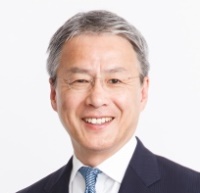
by Noriyuki Morimoto
What is fundamental risk-taking in insurance? One approach is to regard the risks unique to insurance as the subject of fundamental risk-taking, while strictly controlling the risks related to asset management as incidental risks that should be minimized.
However, insurance-specific risks are controlled by probability statistics rather than by management capability. This gives rise to the ultimate question of whether insurance can stand as a profitable business if insurance-specific risks become the fundamental subject of risk-taking and the risks related to asset management are neutralized.
If underwriting insurance itself does not stand as a business, there is no way but to think that the business feasibility of insurance lies in its role of comprehensive risk management on behalf of the customer. In fact, this understanding is probably the global mainstream.
However, as another approach, it is possible to position the risks related to asset management as the subject of fundamental risk-taking, assuming that insurance-specific risks are statistically controlled and neutralized.
If asset management is recognized as the subject of fundamental risk-taking, it is essential for the insurer to develop an original investment strategy based on the characteristics of its insurance liabilities, and allocate business resources such as equity capital and human resources to them.
In any case, what Japanese insurance companies need to do now is to restructure their fundamental risk-taking with this awareness, as well as to reallocate their resources accordingly.
[Category /Risk Appetite Framework]

Chief Executive Officer, HC Asset Management Co.,Ltd. Noriyuki Morimoto founded HC Asset Management in November 2002. As a pioneer investment consultant in Japan, he established the investment consulting business of Watson Wyatt K.K. (now Willis Towers Watson) in 1990.

